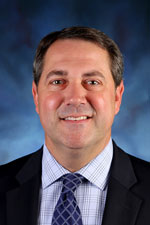FRANKFORT — College campuses are not only a place of learning; they are often a place to gather a perspective on future generations. Students at Kentucky State University are thinking about the climate of racism and reconciliation in Kentucky. What they’re saying might refresh Kentucky Baptists.

Brandon Porter
Joseph Dicks, KBC campus minister at Kentucky State University, recently discussed the issue with a group of students after a long year of racial turmoil across the U.S.
Dicks said the students were shocked at the longevity of racism. “They never expected that their generation would be going through this, and they hope their kids won’t have to,” he said.
One of the positives is that they are responding to recent events by learning. “Due to becoming more aware of racial tensions, it’s forced them to become informed politically and historically,” said Dicks.
He is encouraged by the students’ willingness to put learning into action. “Some have gotten socially involved in various ways because they desire to be a part of the change and not on the sideline,” he said.
They are also looking at government systems and how they shape and influence racial issues in the commonwealth and the country. “Some have developed a deeper interest in current events and are now critically thinking through how legislation impacts local communities,” Dicks said.

He believes encouragement can be found despite the intense unrest experienced in 2020, “None of the students I talked to are discouraged or fearful of living and of pursuing their hopes and dreams, but are more determined to accomplish their goals. That encourages me.”
Dicks said the students could see barriers to progress. “According to students, some hurdles would be the lack of diversity — ethnic, gender and cultural representation in positions of influence,” he explained. Students said “pride-filled Christians who are unwilling to acknowledge their own sin and blind spots” should examine their own hearts so they can “forgive others and love people despite their differences.”
While they believe changing public policy and governance structure will help, the students are mindful that “the gospel is the answer because it’s the only thing that changes the person’s heart.”
In the end, they believe the way Christians help most is through Christ. “If more people share Christ and learn to forgive and love each other according to how Christ loves them, then true reconciliation can take place,” said Dicks.
Brandon Porter